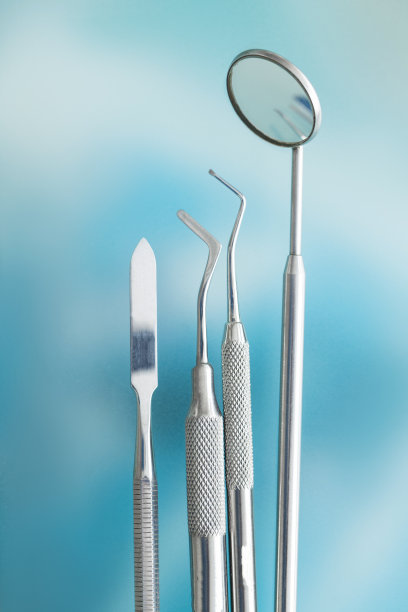Summary: Periodontal disease, a chronic inflammatory condition affecting the supporting structures of teeth, is often minimized as merely a dental issue. However, its implications extend far beyond oral health, impacting overall health and well-being significantly. This article explores the multifaceted effects of periodontal disease on systemic health, mental well-being, lifestyle quality, and economic burden. By understanding these aspects, individuals can appreciate the importance of effective periodontal care, ultimately enhancing their quality of life. Through this exploration, we advocate for a holistic approach to health, where oral hygiene and overall wellness go hand-in-hand.
1. Link Between Oral and Systemic Health

Recent studies reveal a significant correlation between periodontal disease and systemic health issues such as heart disease, diabetes, and respiratory diseases. This connection arises primarily from the inflammatory processes triggered by oral bacteria. When periodontal disease is present, harmful bacteria can enter the bloodstream, causing inflammation throughout the body.
For instance, individuals with cardiovascular diseases may find that their condition exacerbates in the presence of periodontal inflammation. Inflammation in the gums can lead to increased arterial plaque formation, raising the risk of heart attacks and strokes.
Moreover, diabetes management can become complicated by periodontal disease. Research suggests that individuals with diabetes are more susceptible to gum infections, which in turn can make blood sugar levels harder to control. This cyclical relationship highlights the necessity of prioritizing oral health to improve overall body functioning.
2. Psychological and Emotional Wellbeing
The impact of periodontal disease on an individuals mental health cannot be overlooked. Aesthetic concerns resulting from oral health issues, such as missing teeth or severe gum disease, can lead to feelings of embarrassment and decreased self-esteem. This can trigger social anxiety and withdrawal from daily interactions, contributing to conditions like depression.
Furthermore, chronic pain and discomfort associated with periodontal disease can lead to heightened levels of stress and anxiety. Individuals regularly coping with pain may experience fatigue, irritability, and a diminished quality of life, creating a cycle of negative emotional states.
Importantly, addressing periodontal health has been linked to improvements in psychological well-being. When individuals take proactive steps in dental care, they often report enhanced confidence, improved self-image, and increased social engagement as a direct result.
3. Lifestyle Implications and Daily Functioning
Periodontal disease can have extensive ramifications on a person’s daily functioning and lifestyle. Painful gums and tooth loss can hinder one’s ability to enjoy meals, affecting dietary choices and overall nutrition. This change can lead to a suboptimal diet that lacks essential nutrients, worsening health over time.
Additionally, the time and effort required for dental treatment can disrupt daily life routines. Frequent dental visits for cleanings or treatments can strain schedules and affect productivity and social engagements, leading to further isolation.
Moreover, as periodontal disease progresses, it can necessitate more invasive treatments, further complicating recovery times and contributing to extended absences from work or social activities. Finding effective solutions early on can mitigate these disruptions and improve overall life satisfaction.
4. Financial Impact of Periodontal Disease
The economic burden of periodontal disease is substantial, not only affecting individuals but also placing pressure on healthcare systems. Patients may face significant out-of-pocket costs for dental treatments, which can include extensive procedures like deep cleanings, gum surgeries, or even tooth replacements due to loss.
Moreover, the indirect costs associated with periodontal disease are equally alarming. Lost productivity due to absence from work, as well as potential long-term health complications arising from untreated periodontal disease, can lead to increased medical expenses. This financial strain can be overwhelming for individuals and families alike.
Investing in preventive care and early treatment can ultimately prove to be more economical. By maintaining good oral hygiene and scheduling regular dental check-ups, individuals can avoid costly procedures down the road, benefiting both their finances and overall health.
Summary:
In conclusion, understanding the impact of periodontal disease sheds light on its critical role in both oral and systemic health, as well as psychological and financial realms. By recognizing these connections, individuals can take proactive steps towards managing their oral health, leading to better physical and emotional well-being.
A commitment to oral hygiene not only enhances quality of life but also serves as a pathway to improved overall health. Embracing this holistic view is essential for living a healthier, more fulfilling life.
This article is compiled by Vickong Dental and the content is for reference only.
Vickong Dental
Vickong Dental is a large medical group established in Hong Kong in 2008 by professors from well-known medical universities in Guangdong and Hong Kong, as well as medical doctors from key national '985' universities (including Master's supervisors and senior professors). The chain of branches brings together expert dentists with PhDs and Master's degrees from Hong Kong and Mainland China, committed to providing high-quality dental treatment.
"Vickong Dental Practices the University Motto of 'Healing and Serving Society,' with a Stable Operation for Sixteen Years. It Has Been honored with Hong Kong Enterprise Leaders's Choice,' and is a Global Trusted Implant Center for the Nobel Implant System. Recommended by Hong Kong Metro Broadcast and Guangdong Television, it Serves Customers from Over Thirty Countries and Regions, Gaining the Trust and Favor of Citizens from the Guangdong-Hong Kong-Macau Greater Bay Area and Surrounding Cities.

Thousands of customers' unanimous praise
The most recognized and highly recommended dental service by customers in the Guangdong-Hong Kong-Macau Greater Bay Area
We Ensure You Receive Detailed Care and Attention Here
Hong Kong standards, Shenzhen prices, Your Trusted English-speaking dentists

Vickong Dental Medical-Grade Instrument Disinfection Process
Vickong Dental Medical-Grade Instrument Disinfection Process

Vickong Dental Chain: A Warm and Comfortable Environment for Treatment






Appointment Hours

Q&A
Why choose Vickong Dental?
Vickong Dental practices the university motto 「Medicine to Benefit Society」, with each branch bringing together highly qualified dentists with doctoral and master’s degrees from Hong Kong and the Mainland, and has maintained seventeen years of steady operation。Recipient of 「2024 Hong Kong Enterprise Leaders Brand」, 「2025 Hong Kong Enterprise Leaders Brand」, a Nobel Biocare Global Trusted Implant Center, and a brand recommended by Metro Radio Hong Kong and Guangdong TV。
To date, we have served customers from more than thirty countries and regions,earning exceptionally high word-of-mouth recognition and trusted recommendations from residents across the Guangdong-Hong Kong-Macao Greater Bay Area and surrounding cities
We have eight major branches in Zhuhai、Shenzhen,and a consultation and service assurance center in Hong Kong,so you can book a free consultation at any time for any questions,which is very reassuring.
If I do not accept the quotation after the CT scan, will I be charged??
No! As long as the actual treatment has not started, you will not be charged any fees.
Will there be any additional charges during the treatment process?
No, there won’t be any additional charges. Before treatment begins, we will clearly explain the treatment plan and its corresponding fees. Only after the patient agrees and signs the consent form will we proceed with the dental service.
Can I pay in Hong Kong dollars?
Yes. Vickong Dental accepts payment in Hong Kong dollars. The amount will be converted based on the exchange rate of the day, and the applicable rate will be clearly communicated to you in advance.
Can I reschedule my appointment at any time?
Yes. Please contact us via **WeChat** or **WhatsApp** as early as possible, providing your original appointment time and details, along with your preferred new date and time slot for rescheduling.













